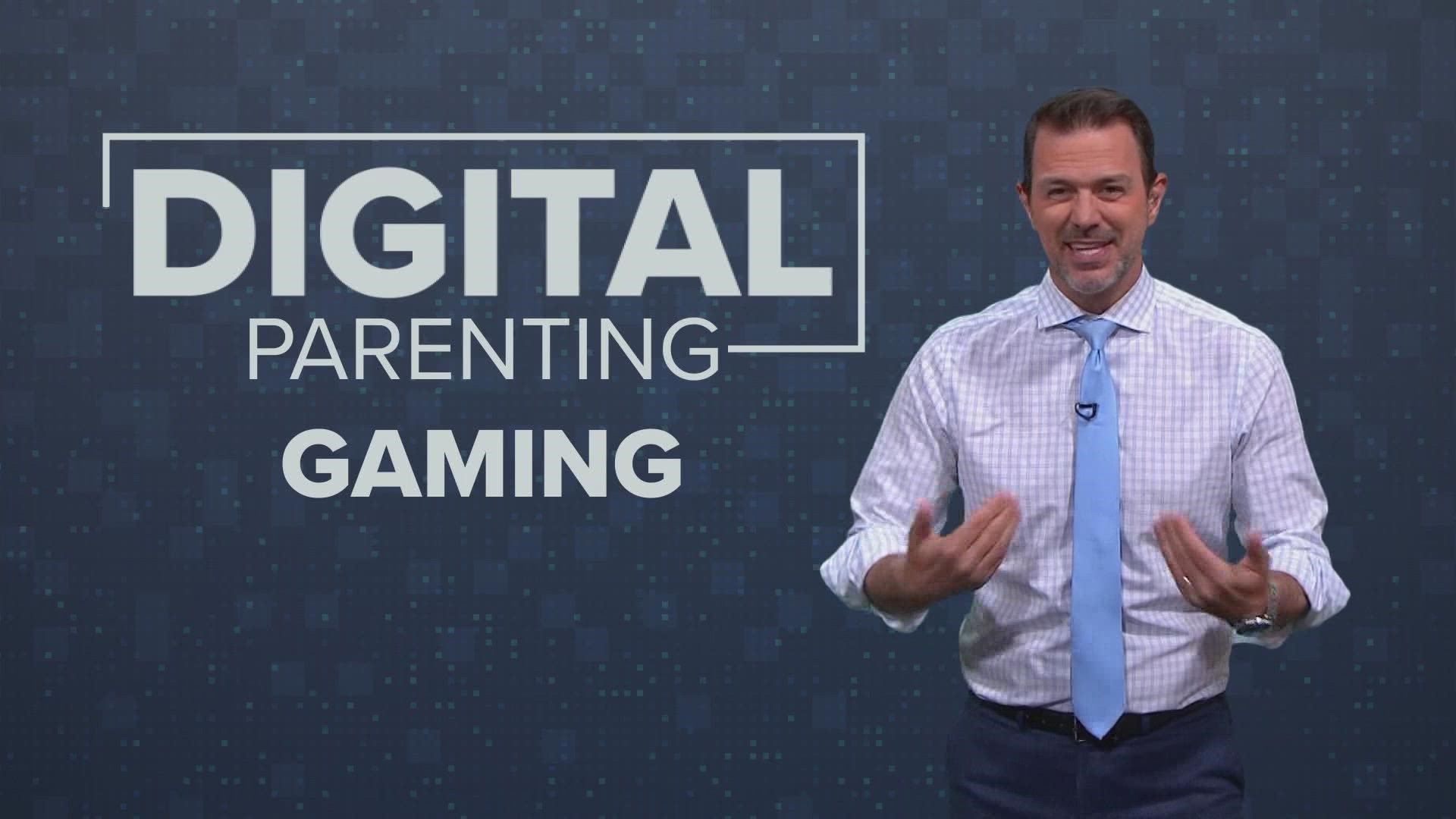DALLAS — Recent studies show that kids are spending more time gaming than ever.
Children ages 5-8 spend about 40 minutes a day playing some sort of video game. And kids over the age of 8 play for almost an hour and a half. If today's Digital Parents think games are everywhere, they may be right.
"It's become one of those activities that everybody does, even if they say they don't do it," said Jeff Haynes, Senior Video Game Editor for Common Sense Media. "Chances are they're probably gaming. In fact, playing games by and of itself is a human activity. Gaming by itself is not a bad thing – it’s just in how you wind up doing it."
Haynes' job is to help parents make informed decisions when it comes to the games today's kids are playing. Common Sense Media provides reviews and insight into a wide variety of content kids have access to, including video games. Their work highlights not just an overall rating for a specific game, but also whether or not that title includes adult language, excessive violence, commercialization, even positive role models.
It's a useful tool for parents trying to keep tabs on what their kids are playing and how much time they're spending gaming. Though Haynes is quick to remind that it's not the quantity of time spent gaming, but the quality.
"There's nothing wrong with having the option to play a game, especially if you've gotten your homework or chores done, as a way to unwind," he said." Everybody needs to do it. Playing games is a human activity."
Defenders of gaming will say the industry gets a bad wrap. That many games are educational and can help kids build important life skills.
Haynes said it's important to remember that much like sports or even plain board games, video games can be a productive and worthwhile endeavor to relax, bond with friends or even just blow off some steam.
But he said parents should be concerned when a kid elevates gaming above everything else in life, neglecting schoolwork, chores and other responsibilities. And it's also a red flag if a kid suddenly becomes secretive about their gaming habits, hiding things from mom or dad.
Another concern for parents - chat functionality built in to many of today's games. Many times, the person on the other end of that chat is anonymous. Which means parents don't always know who their kid is talking to, or what they're talking about. Haynes recommends disabling chat features if a parent is uncomfortable.
And like much of parenting, Haynes said the most important tip he has for parents is a common one: talk with your kids. Or better yet, join in on the gaming with them.
"Simply sit down and ask, what is it you like about this particular title, genre, experience," Haynes said. "Ask their kid what they're into, why they like it. And then you've got this shared experience you can talk about."
More reporting on digital parenting from Marc Istook:

